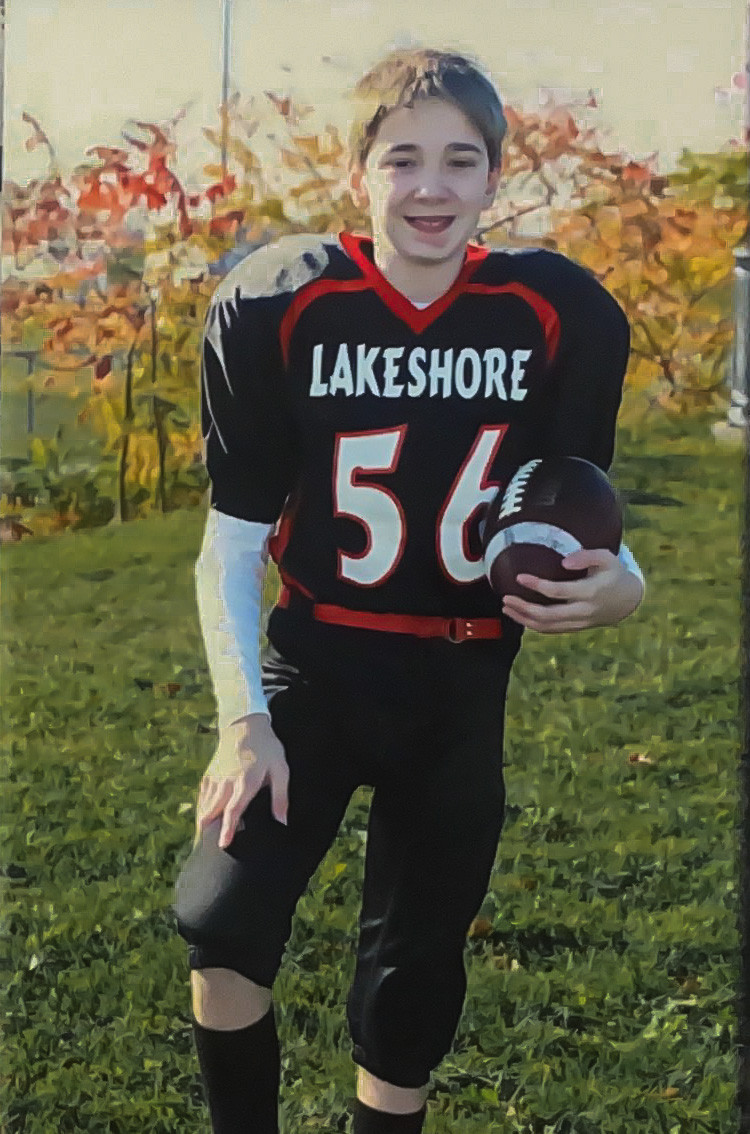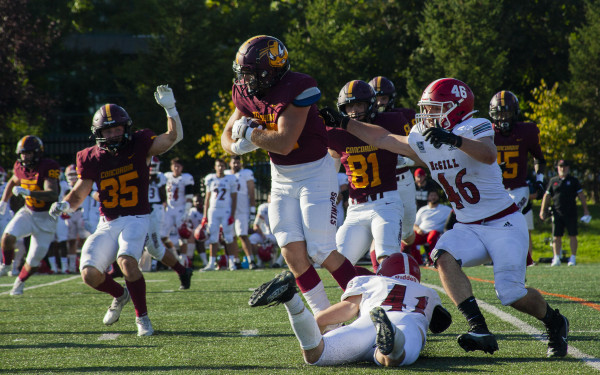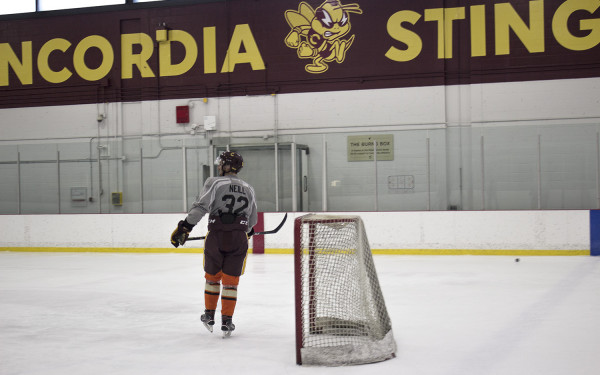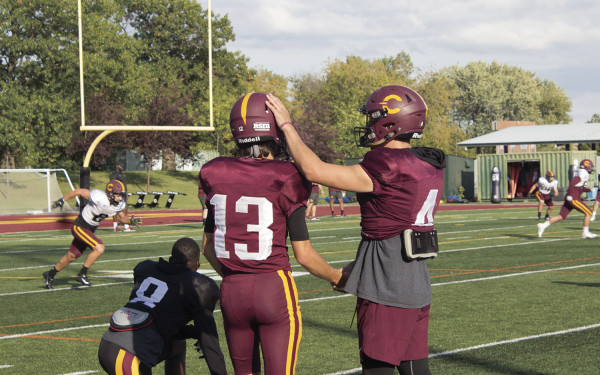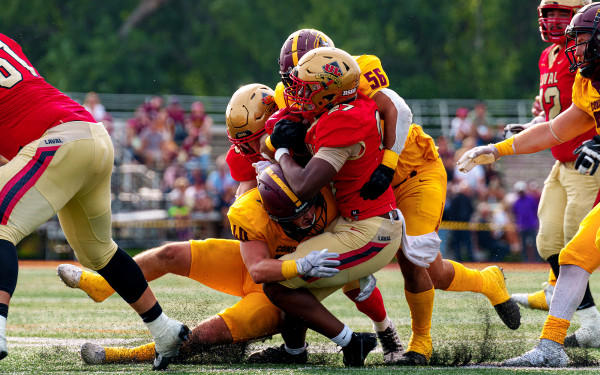The death of a career
Hanging up my cleats at 15 still haunts me at 23
I’ve covered U Sports competitions for over two years. Stepping on the Concordia Stingers’ turf field fills me with nostalgia from my playing days.
It’s why I appreciate the university athletes strapping up their pads. What I never reveal is the underlying feeling of grief that still manifests itself eight years after I hung up my cleats.
Let’s get one thing straight, I knew I wasn’t going pro. But quitting football at 15 encapsulated a final year to forget—and one that I wish I could redo.
I took over the role of quarterback, the most difficult position in the game. Our roster had thinned out thanks to low participation numbers. Combined with my six-foot frame and arm able to launch a ball 30 yards on a rope, I led my Lakeshore Cougars team to a whopping… 2-8 record.
Frustration does not begin to describe the year-long feeling I had. It not only lent to my issues with self-confidence, but the criticism I endured as a youth was unimaginably vitriolic. Let’s just say watching game film on mute was preferable compared to hearing the 40-something-year-old drunken dad working the camera complain about every slight blunder our offence made.
My final game came in the playoffs; we were handily defeated 64-0. After our opponents balled out, I bawled my eyes out. Despite the state of denial that I had lived in, I knew it was my last game as soon as the final whistle blew. Denial would not be the last stage of grief I’d endeavour.
I bargained by planning to join another team in the following year, but the realities of being able to afford—both monetarily and time-wise—a gym membership was highly unlikely. My anger came as I felt cheated in my final year, and compared to my peers who were able to continue.
I was depressed, feeling that countless hours of practice and dedication had amounted to nothing in the blink of an eye.
I still participated on high school teams, but not for football, and not with much organization, given John Rennie High School’s own problems with structure and participation numbers. Secondary school sports eventually felt like an additional letdown.
Besides the lack of accomplishment, it was my teammates I missed most of all. You know those friends that even after years of not seeing them, you can pick up a conversation like nothing has changed? When you play organized sports, that’s the majority of your teammates.
Despite the previously described feeling of being cheated, I take pride in seeing my former peers still taking to the field at the university and even professional level.
I find myself chuckling while writing this graph as I reminisce specifically about a guy named Liam, whom I ran into last year while he was a part of the McGill Redbirds men’s rugby team. He had just finished a game against the Concordia Stingers and it was pouring rain; this didn’t stop us from exchanging the sweatiest hug imaginable.
After roughly eight years of retirement, I believe the turbulent final campaign is what led me to a career in sports journalism. The relatability of what it means to leave everything on the field is not lost on me. But before journalism, there were other pursuits—further bargaining—to fill the void in the absence of youth sports.
I tried studying athletic therapy but found that I was more interested in hopefully joining a championship team because I knew medical staff get an (incredibly valuable) championship ring along with the rest of the team. I thought about data science, but it was much like the former profession.
Journalism is now where I find myself. The obstacles of funding and participation should not interfere with someone's desire to play a sport they love. This is why I advocate and try to report on stories involving diversity, equity, and inclusivity within sports and recreation.
So, no. I’m not a professional athlete. But I’m also not that 15-year-old holding on to the remaining pieces of a season wasted anymore. I guess there is some degree of semblance as a result. Through the death of my career, I found myself born again as a journalist who wants to tell these stories; and in that regard, I see myself going pro.
This article originally appeared in Volume 44, Issue 5, published October 31, 2023.

